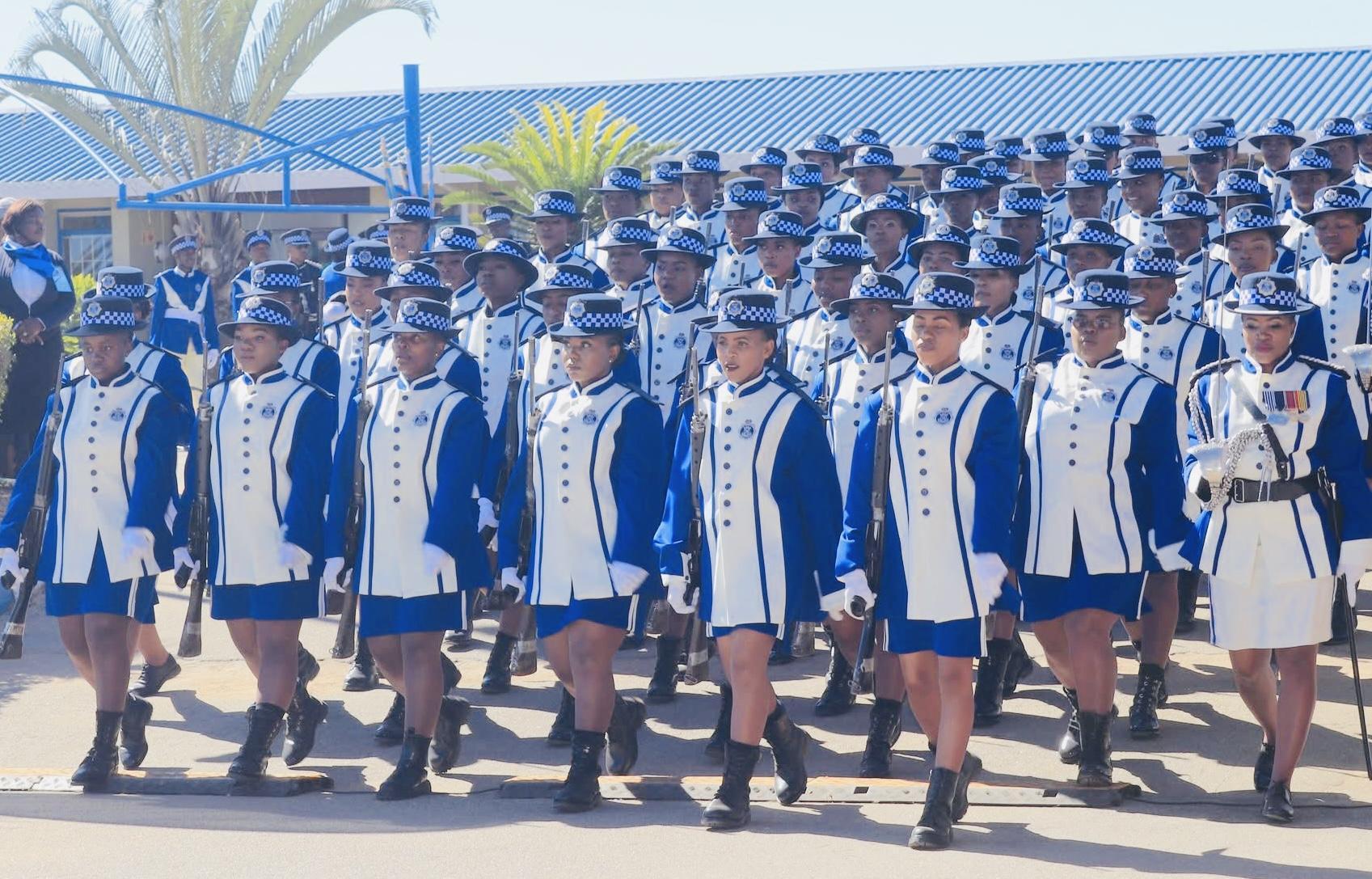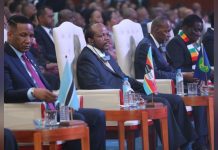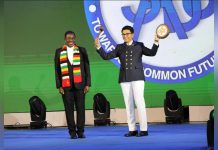By Wandile Dludlu.
Africa-Press – Eswatini. Matsapha Police Academy was a hive of action on Friday, wherein the Commander-in-Chief visited to celebrate what they call Police Day as well as Police Pass-Out.
This is a day ordinarily meant to honor and give due societal respect to men and women, some of whom have literally paid with their lives, to ensure criminality is kept under control.
Indeed, this is one of the oldest organizations bequeathed to us by the white British settler colonial government, it is literally one institution in our country that is approximately 118 years old.
But its origin, development, and evolution tell the story not just of officers in blue but, fundamentally, the politics of this beloved country of our forebears.
The single act of grip by the British takeover of Swaziland was not only from eMaswati but also from the Boer Afrikaner leadership, which imposed itself through the 1894 Proclamation that installed the first foreign power domination in our land by Paul Kruger, then Prime Minister of the Transvaal.
In 1907, the British set up the Police Force as a coercive state apparatus to enforce law and order, peace, and stability-elements crucial for market expansion and the modern neoliberal kind of governance upon which their interests were catered for then and continue to be today.
These elements, however, should not be mistaken for meritocracy and people’s governance, the true precursors to people’s development and upward social mobility as seen across the world in the last 60 to 70 years.
The pre-independence era of the Police was characterized by institutional racism, where this organization was led by and for the predominantly white, British-imposed state.
They enforced laws that sought to protect property relations, State sovereignty, and the business interests of the few landowners, business players, and elites, mainly composed of the British settler class, the Boer settler class, and the Swazi traditional aristocracy.
These three shared one common material class interest: they were the real owners of land, whether through title deeds, crown land or Swazi Nation Land.
This tricameral alliance owned the means of production in the industrial sector and wherever productivity proved ideal.
This unholy alliance also owned capital (finance), with which they funded their various business enterprises. This was the case before 1968, and it remains the case today in 2025.
During the eve of independence and after independence, the police continued to depict a very interesting phenomenon, particularly how politicians desperately abused the police force beyond its elasticity.
One example was the violent crackdown of the Mpondo Ngelilanga 1964 living wage uprising, wherein labor and political parties challenged the political elites of both British origin and the Swazi Royalty.
The ill-equipped police force could not contain the genuine demands for better working conditions and independence.
Britain and the Swazi royalty aligned their resources amidst their inherent tensions, which saw the deployment of the “Golden Highlanders,” an elite combat unit that had earlier shown its brutality in suppressing the Mau Mau rebellion led by Jomo Kenyatta.
This unit was airlifted from Kenya to Siteki in the Lubombo region and assigned the duty of quelling the revolutionary fires led by the Ngwane National Liberatory Congress(NNLC) of Prince Dumisa and thousands of unaffiliated patriots across the National spectrum.
This gave the first real pushback, which exposed the true character of the Swazi ruling bloc.
At the 1968 Independence ceremony, the police played their usual state duties during a stage-managed transfer of power, from British settler colonial predators to traditional converts, seamlessly and meticulously transmuted, with both the British and Boer alliance under a minority political party called the United States Association( USA).
This party later merged with Sobhuza’s Imbokodvo National Movement to form Imbhokodvo Lemabalabala National Movement, against the leading force for change, the NNLC, and remnants of the Swazi Progressive Party led by the mighty JJ Nquku.
It is well known that Sobhuza II soon banned all political parties and similar organizations.
Once again, this stretched the police force beyond its natural scope. The police hunted political leaders such as Dr. Ambrose Zwane, Mageja Masilela, and Thomas Bhekindlela Ngwenya, who was disenfranchised under a clumsy charge of not being a Swazi citizen.
This was the case of Thomas Bhekindlela Ngwenya versus The King (1972 Constitutional case). Authorities alleged that he was not a Swazi citizen because he was born in Emjindini, in Mpumalanga Province, South Africa-later ironically claimed as part of Swaziland by the so-called Border Restoration Committee.
In 1977, the police once again faced fire as teachers and students called for transformation and better working conditions beyond just salaries.
This was in response to Sobhuza II’s illegitimate one-man rule after he dissolved parliament and usurped all legislative, executive, and judicial powers. Once again, foreign police were brought in to support the Monarchy, including a Boer crack squad responsible for the 1961 Sharpeville Massacre.
They came to the rescue of their class allies, backing Sobhuza II’s regime as he ruled by decree following the April 12, 1973 proclamation.
Fast forward to today: how can the police honestly hope to do their work when a Police Commissioner like Manoma (Longanomi Forkol) can openly violate a Supreme Court judgment on the Phase II case, on the eve of Police Day?.
This is a stark reminder of the brazen, ill-begotten, and bankrupt leadership of the police top brass. But is this new? Not at all. Remember when Police Commissioner Edgar Hillary openly violated the Supreme Court judgment in the Macetjeni and Kamkhweli case of 2000? Innocent people, including children, were displaced in the twilight hours of the night, with the police once again abused to enforce inhumane decisions.
Brothers and sisters in blue, until you wake up and smell the poisoned coffee, you must realize that Tinkhundla, led by the very same King you pledge loyalty to over the nation, has never been on your side. He owns what you do not: land (in full ownership, not kukhonta), industries where Swazis are super exploited for his accumulation of surplus value (profit).
He lives a completely different life and his family from yours. He doesn’t understand, cannot actually appreciate your plight beyond stealing your labor power for his class benefit with his cabal, that’s how far your relevance matter.
Police juniors, cadets, and even so-called superiors must understand one thing: your labor power is being abused against your class interests. Instead, you are being used to oppress your own people, to the point of killing them, as witnessed in:
The 1977 teachers’ and students’ riots, the 1983/84 Liqoqo detentions (60 days without trial, borrowed from apartheid laws)
The 1996 labour and political uprising collaborated and came-up with twenty-seven(27) demands and the recent 2021 political unrest, all because the regime refused democracy, good governance, rule of law, and a people’s economy.
Meanwhile, many of you drown in debt from unscrupulous loan sharks-many linked to royalty’s business cabal-driving police officers into depression, suicide, and hopelessness, while royal elites live in obscene luxury.
This happens against even laws like Consumer Protection Act of 2016,which spells in black and white things such as reckless landing together with hype interests that financial institutions should guard against.
Until when will you keep calling for salary increments and adjustments, when you are trapped in the same poverty and bleak future as the rest of us, when bigger urgent matters stands before us, money solves nothing even if you were to be granted when social ,economic and political gradient gravitate entirely against the working class and poor Swazis for which you are part of.
This narrow, head-in-the-sand posture is petty, self-defeating, and a generational sellout.
Before you are police, you are Swazis, Tinkhundla and its allies, local and international, have been looting for decades.
When things collapse, Mswati and his class allies will find alternatives, the blind loyalty to the oath of office you uphold is fundamentally flawed, and an anti-thesis to true sovereignty and statehood, the tenets of any modern governance.
Wake up, my sisters and brothers, do not say you do not know what to do.
Join the fallen and living patriots who are carving a path to seize state power back to its rightful owners, the people, Emaswati.
For More News And Analysis About Eswatini Follow Africa-Press







